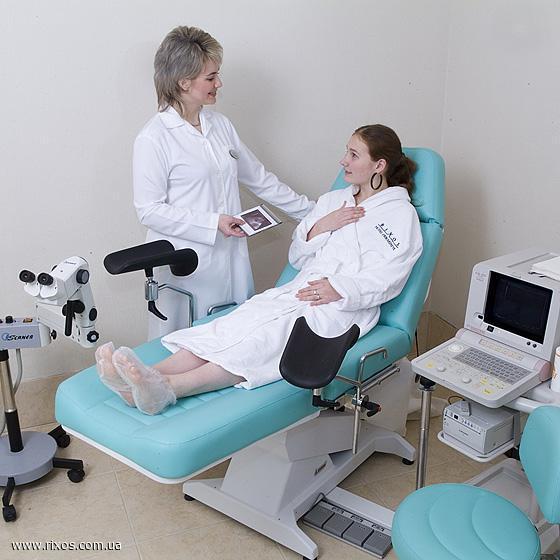Posted by Editor | 0 Comments
10 Crucial Things You Should Disclose to Your Gynaecologist
It’s normal to feel shy or uncomfortable during a gynaecological exam. However, your shyness and hesitance to disclose the 100% truth about your sexual habits and reproductive health can put you at risk for possible illness.
Doctors do not ask whether you have had an abortion or how many sex partners you have had just for fun; these questions are asked to help them know your body more and help find solution to any health problem that may arise after the tests. Here are the important information that your gynaecologist from a gynae specialist and maternity hospital in Singapore should know about your reproductive health and wellness.

1. Number of Sexual Partners You’ve Had
Your specialist won’t judge you based on the number of partners you have had. She needs this information to make sure you’ are having safe sex, and are free from sexually transmitted illnesses (STIs)—infections accompanied by pelvic pain and can affect future fertility. Some forms of STIs such as the papillomavirus (HPV) can cause cervical cancer. Making it a habit to use condom during vaginal, oral, and anal sex lowers you chance of acquiring STI.
2. Unprotected Sex
Not only unprotected sex makes you prone to STIs, but also put you at risk for unwanted pregnancy. Also, some STIs, such as Chlamydia, often come symptomless, while others like HPV remain dormant for years. It is your responsibility to disclose this fact to your doctor in order to run the necessary tests and come up with accurate findings and—if necessary—treatments.
3. Pain During Intercourse
Pain during sex may occur, but shouldn’t be persistent over subsequent contacts. If you feel pain while having sex, it should be investigated immediately. Sometimes people experience internal pain during intercourse because they have an infection, or something’s wrong internally. Other causes of pain include vaginal dryness and vaginismus—a muscular problem that causes the pelvic muscles to tighten.
4. Bleeding After Sex
If it is just one time after a rough intercourse, you probably don’t have to run to the hospital. However, if it happened more than once, it’s imperative to let your gynae know. Bleeding after sex can be a sign for anything from dryness problem to a cancerous cervical issue. Disclose this information no matter how embarrassing it may make you feel—it’s better to be safe than embarrassed.
5. Current Supplements and Medications You’re Taking
Certain antibiotics, supplements, and medications can interfere with birth control, which can result to unwanted pregnancy. Even if you’re planning for maternity, it is strongly advised that you disclose this information to your doctor as some medications can affect the body’s natural ability to support healthy pregnancy, while others can potentially cause impairment in the prenatal development.

6. Changes In Menstruation
Menstruation that become too short, long or heavy, or goes missing should be brought to the attention of your gynae. For younger women, this could signify hormonal problems or pregnancy disorders. For example, if a woman in Singapore experiences abnormal bleeding during pregnancy, this could be a miscarriage. Endometriosis, fibroids, and clotting problems can also cause heavy flow. It is not normal to bleed heavily for 10 days. Not only excessive bleeding can result t anemia, it can also affect your day-to-day life. On the other hand, a menstruation that disappears can be due to pregnancy, significant weight loss, over exercising, eating problems, or polycystic ovarian syndrome (PCOS).
7. Funky Vaginal Odour
This is usually due to pH imbalance or infection, which can be treated by your gynaecologist. Interestingly, some women’s health specialists in Singapore mentioned another common reason: tampons left too long inside the vagina. Minor changes of vaginal odour around your cycle are normal, but if it starts smelling too funky, make sure to tell your doctor about it.
8. Plans for Pregnancy
Planning for a baby? If you’re contemplating pregnancy, your doctor should know about this. Your gynae can give you medical tips that she don’t usually offer on a regular basis. Your doctor is also your best source of information about the things you need to do to prepare your body for conception. And even if you’re not planning for a pregnancy anytime soon, it’s a good idea to bring up the topic of fertility to your Singapore doctor. They can help is ensuring the preservation on your fertility and answer any questions and concerns you may have in mind.
9. If You’ve Been Sexually Abused
Whether you’re worried about STIs, seeking resources for help, or just looking for a person to talk to, your gynaecologist can get you to the right direction. This is especially important for women who don’t have primary healthcare doctor, since their gynae could be the only health specialist they see on a yearly basis. Some patients who have had history of sexual abuse do not know that their gynae could offer significant help not only for their sexual health, but emotional and mental health as well.
10. Orgasm Issues
Unless you’re seeing a sex therapist, you’re gynae is the next best person you can talk to for sexual dysfunction problems. Anything about sex is under gynaecology, so an orgasm issue is just appropriate to be brought up during a gynaelogical visit. Your doctor understands these issues and can certainly help you. An issue may require a referral, or it may be a sign of another sexual health problem going on.
It’s really easy to lie to your gynae. You feel awkward, embarrassed, or maybe think that your sexual life is just out of their business. However, lying or not telling the entire truth to them can negatively affect your overall health. When undergoing a gynaecological test, remember that you’ll get the best and the most accurate results if you disclose the right and the truest information about your reproductive health.


